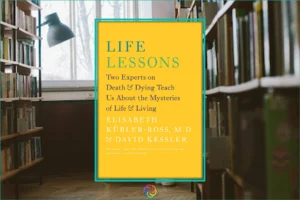
Life Lessons by Elisabeth Kuebler-Ross – Book Summary
Life Lessons Summary Two Experts on Death and Dying Teach Us About the Mysteries of Life and Living By Elisabeth
Elisabeth Kübler-Ross: Pioneer of the Psychology of Dying, Death, and Compassionate Care
Elisabeth Kübler-Ross (1926–2004) was a Swiss-American psychiatrist, author, and humanitarian best known for transforming society’s understanding of death and dying. Her groundbreaking work introduced empathy and dignity into end-of-life care, forever changing the practice of medicine and psychology.
Born in Zurich, Switzerland, Kübler-Ross grew up during World War II and volunteered in refugee camps as a teenager, experiences that shaped her lifelong commitment to alleviating suffering. She graduated from the University of Zurich Medical School in 1957 and later emigrated to the United States, where she began teaching at the University of Chicago’s medical school.
Her seminal book, On Death and Dying (1969), introduced the now-famous “Five Stages of Grief” — denial, anger, bargaining, depression, and acceptance — based on interviews with terminally ill patients. While the model has since evolved, it revolutionized the way healthcare professionals, patients, and families approach mortality.
Kübler-Ross went on to publish more than twenty books, including Life Lessons, On Grief and Grieving, and The Wheel of Life. Her advocacy helped establish hospice and palliative care movements worldwide. She lectured across the globe, urging medical practitioners to treat dying patients with humanity rather than clinical detachment.
Throughout her career, Kübler-Ross faced criticism for exploring near-death experiences and spirituality, but her interdisciplinary approach bridged science, philosophy, and compassion. She received numerous awards for her humanitarian work, including recognition from the American Psychiatric Association and the American Humanist Association.
Her influence extends far beyond psychiatry — her teachings have informed modern grief counseling, spiritual care, and bioethics. The Elisabeth Kübler-Ross Foundation, established in her honor, continues her mission to foster open dialogue about death, loss, and healing.
Kübler-Ross’s legacy lies in her courage to humanize one of life’s greatest taboos. By giving voice to the dying, she taught the living how to find acceptance, empathy, and meaning in the face of mortality.

Life Lessons Summary Two Experts on Death and Dying Teach Us About the Mysteries of Life and Living By Elisabeth

